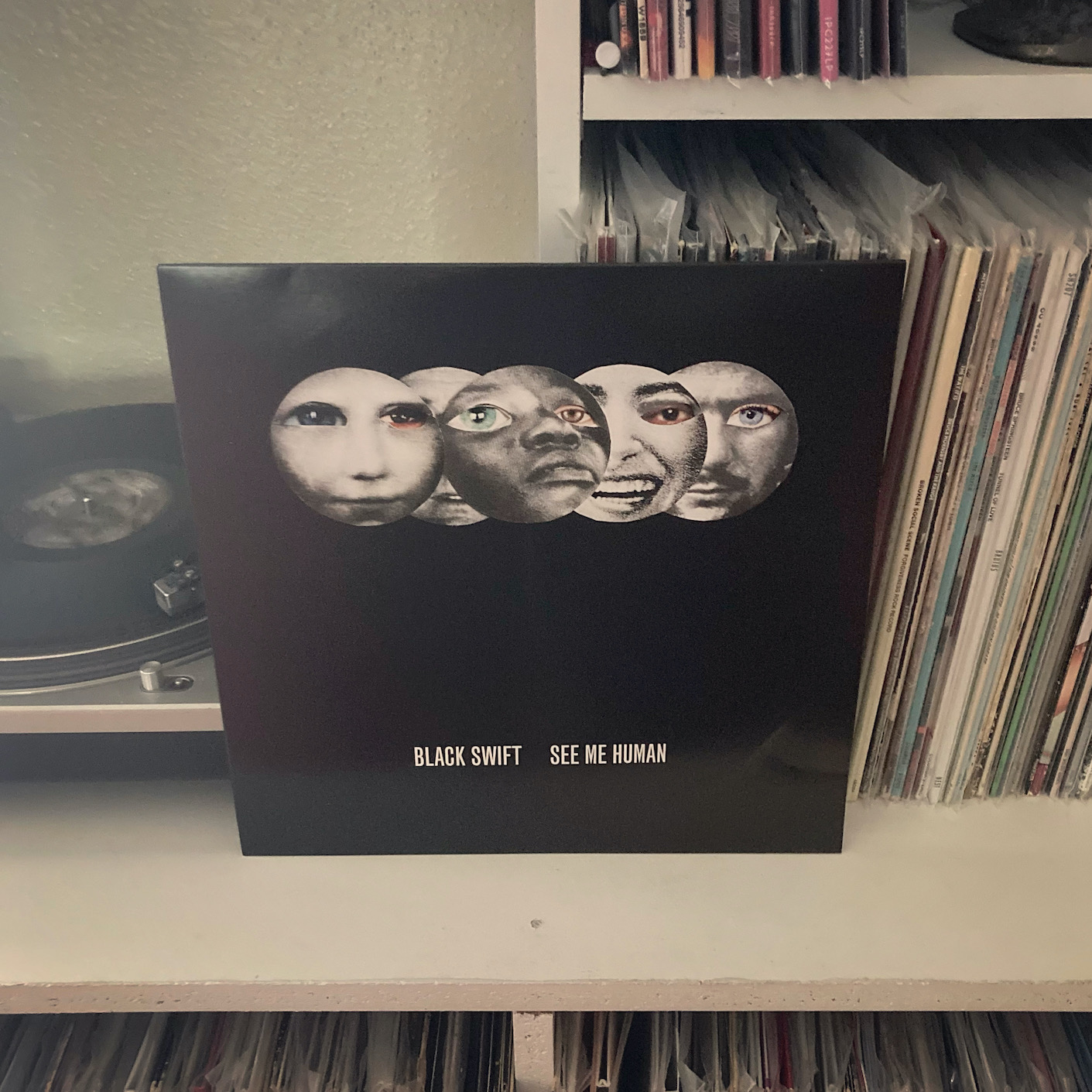
When you release a record produced by a legend like Sylvia Massy, you run the risk of undermining your previous releases. When the core of your musical essence is uncovered and enhanced by such a skilled architect, it might make the releases before that feel cluttered and unfocused.
Might is the keyword there, especially in the case of Black Swift’s See Me Human, which I’m coming to backwards from their fantastic Desert Rain EP. While it doesn’t have the sonic clarity that Massy brought to that disc, See Me Human has the same passionate songwriting and raw rock and roll, giving it more than enough clout to stand on its own.
Slide guitars wail through fuzzed out amplifiers, drums and bass lay down dark, tempting rhythms, as strings, keys, and harpsichord occasionally rise above the din to create a sound that seems to be birthed from the dry desert bed of the American West. Musically, it lives at the intersection of Black Rebel Motorcycle Club, Johnny Cash, and Queens of the Stone Age. The blues, gospel, and punk meld together with fiery guitars, heavy rock and roll grooves, and the hypnotizing voice of Sally Grayson, the principal songwriter, visual artist, and here, co-producer.
As infectious as the instrumental performances are, Grayson’s writing is the linchpin keeping it all together. Having had her play in my living room not too long ago, I can assure you that these songs hit just as hard when it’s just her and a guitar. The album is underpinned by a longing to see the dividing walls between our demographics torn down, for each of us to recognize our own inherent value, and to see that value in those around us.
This message is especially loud in the Bob Dylan-via-Kim Gordon “Mannish Girl,” where she wears the skin of all identities, crying out “Joints and sinews, bones and blood, muscles and veins, We’re all the same!” “Called To Love” (which opens the digital version but is in the middle of side B on the vinyl) almost sounds like a wide-eyed street preacher, serving a sermon that’s as much for the preacher as everyone else. The blistering, one minute barrage “Understand My Prequel” pleads with the listener to consider the pain and trauma that would have molded their “enemies” lives. “Refuge” blends Middle Eastern scales and gospel influence, praying for peace between all people.
Even when that message isn’t quite as on the nose, the record still calls the listener to embrace hope and love over despair and suspicion. “There Is More” is an invitation to see the goodness beyond all the calamity we see around us. “Bang Bang” tells a parable of a domestic murder to point out the absurdity of a life without forgiveness. The ballad “Divinely Alive” is a celebration of life in the face of mortality that shifts between morose, atmospheric Radiohead verses and a bouncing, Beatles chorus. Closer “Sugar Mountain” leans heavily into gospel with spring-reverb-drenched guitars, a wall of Hammond organ, and an image of the paradise to come when we lay down our prejudice and suspicion and embrace all of mankind as our kindred.
While in my last post, I credited Sylvia Massy with putting a megaphone to Greyson & Co’s raw passion. But listening to See Me Human, it seems they speak plenty loud without the help.